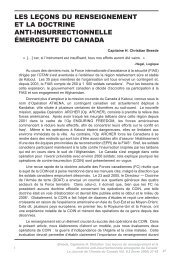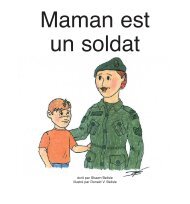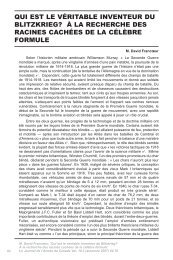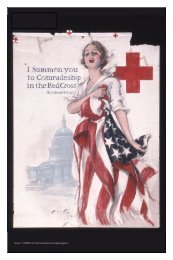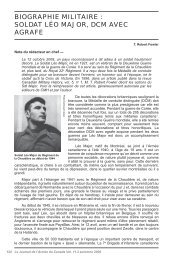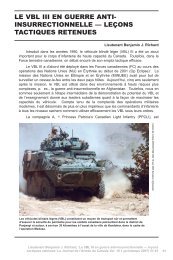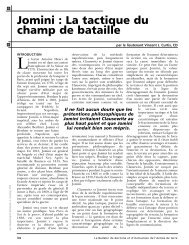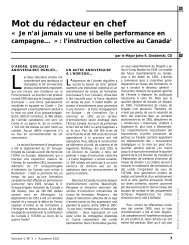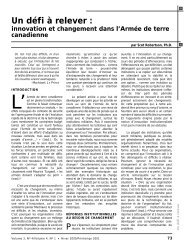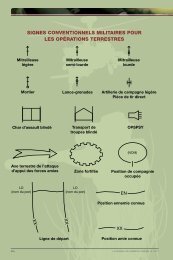The Canadian Army Journal
The Canadian Army Journal
The Canadian Army Journal
Create successful ePaper yourself
Turn your PDF publications into a flip-book with our unique Google optimized e-Paper software.
56<br />
By 1996, the movement had evicted other factions from Kabul; in 1998 they gained<br />
control of Mazar-e-sharif and were the de facto rulers of the country. 16 Initially, the<br />
population was cautiously optimistic—the Taliban had managed to end the lawlessness<br />
and “enjoyed…popularity as a reform movement.” 17 In fact, this spirit of optimism was<br />
not limited to Afghanistan, and international observers can also be characterized as<br />
sharing the hope of the Afghan people with regard to the ultimate effect of the Taliban’s<br />
rapid rise to power. 18 Sadly, once in power the Taliban revealed the true nature of their<br />
regime.<br />
Using a structure that one author characterized as being similar, ironically, to that of<br />
the “Roman Catholic Church,” 19 where Mullah Omar was viewed as “infallible,” 20 the<br />
Taliban began the radical process of implementing Islamic law (sharia) on a national<br />
scale, reflecting the worldview of Omar himself and his own “understanding of Islamic<br />
precepts of government.” 21 This process has been described as “an attempt to go back<br />
in time,” to a “world of simple truths that resembled Islam in the seventh century.” 22<br />
Almost overnight, the rules of social conduct changed, with women being barred from<br />
educational opportunities and even healthcare, men being expected to grow full beards<br />
and adopt traditional dress, and “any social mingling or communication among men and<br />
women outside the family” being forbidden. 23 This had the effect of earning world-wide<br />
shock and disproval, to the extent that the regime was only recognized by Saudi Arabia,<br />
Pakistan and the United Arab Emirates. 24<br />
For five years, the regime lead by Omar ruled Afghanistan and ultimately sowed the<br />
seeds of its own demise when they accepted Osama Bin Laden on their soil. In the wake<br />
of 9/11 they refused to hand him over to American authorities. 25 Within two months of<br />
the attacks in New York, the American military began working with other groups in<br />
Afghanistan. <strong>The</strong> Americans relied upon a pairing of “Special Forces teams and<br />
airpower with local commanders and militias.” 26 While devastating against the Taliban,<br />
this arrangement would also have unanticipated consequences when it came time to<br />
decide who had won the war—the Americans or the warlords that they were working<br />
with. 27<br />
<strong>Canadian</strong> <strong>Army</strong> <strong>Journal</strong> Vol. 11.1 Spring 2008<br />
Combat Camera AR2008-Z135-05


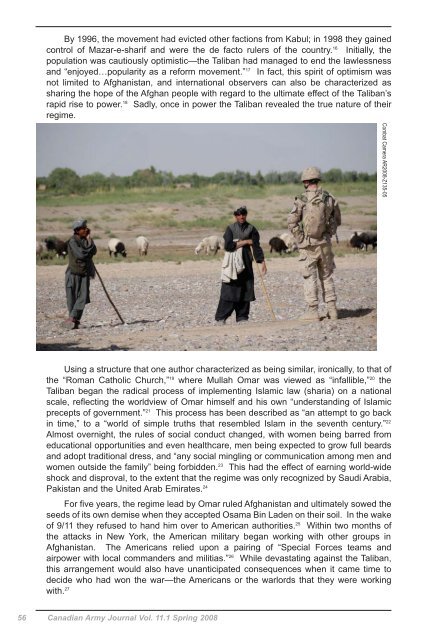
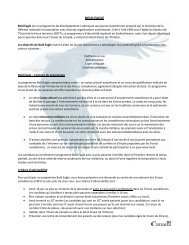
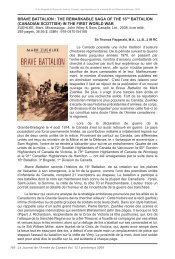
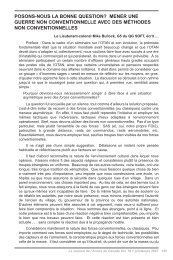
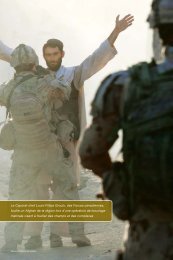
![La modularite dans l'Armee de terre canadienne [pdf 1.6 MB]](https://img.yumpu.com/17197737/1/188x260/la-modularite-dans-larmee-de-terre-canadienne-pdf-16-mb.jpg?quality=85)
